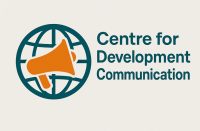Climate change threat to education becomes prominent in Kogi State, North-Central Nigeria. Frequent floods as a result of rising sea levels caused by climate have destroyed many schools and denied a huge number of persons access to education.
According to official figures from the Kogi State Emergency Management Agency (SEMA), over 1,380 schools and about 5,550 children were affected by flooding caused by climate change in 2022.
Corroborating this, Dorcas Elebiyo, the Kogi State former Commissioner for Education, in the year 2012 gave accounts of how 548 primary and secondary schools were affected by floods that ravaged some communities. A situation she said denied over 100,000 persons access to education. In her account, Elebiyo disclosed that the Ibaji Local Government Area of the state was the worst hit as all schools were completely taken over by floods, making it impossible for all persons to have access to education.
Mr. Hassan Ameh, a teacher in one of the public primary Schools in Ibaji who spoke to MAWA-Foundation, narrated how the 2012 flood ended the education of many persons in the area.
Ameh said he counted over 13 families who could not send their kids back to school after the flood because they had no money to buy back school desks, books, and uniforms destroyed by the flood.
MAWA-Foundation visit to some schools in Lokoja the Kogi State capital in September 2022, showed how flooding affected school turnout. For instance, Mr. Yakubu Godwin, the Principal of GYB Model Science Secondary School, Lokoja shared how the flooding that happened last year made it difficult for his students to resume.
Some teachers at Gadumo, Ganaja, Adankolo, and Kabawa areas of Lokoja shared how it was difficult to access schools as a result of floods and how that is affecting education in the state.
“It is so easy for people to share pictures of floods in Kogi, but many do not come back to find out how these floods happening as a result of climate change is impacting education across many communities,” one of the teachers told MAWA.
Many of the residents interviewed by MAWA-Foundation in different narratives, explained how flood has affected them in many ways with children’s education being a major source of concern to many parents.
Mr. Musa Aliyu, a head teacher at Ozi Primary School, while narrating how flooding affects education in Kogi State, reflected on how accommodating survivors displaced by flood in his school for temporal shelter made learning very difficult.
Aliyu disclosed that since 2012, survivors displaced by the flood had continued to use his school as temporal accommodation. He, however, pointed out that learning has become difficult because many of the survivors share classrooms with students together with their livestock.
Often, conversations around climate change in Nigeria, are not linked to how it is impacting education, with flood and hotness of weather being prominent leading factors.
— Audu Liberty Oseni
